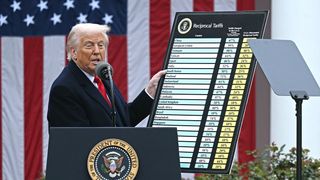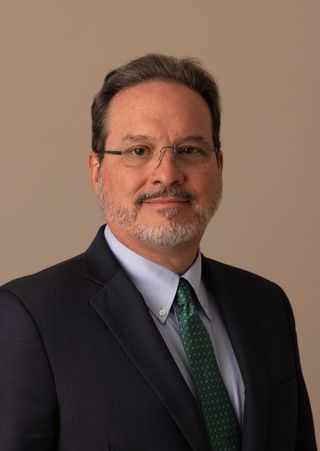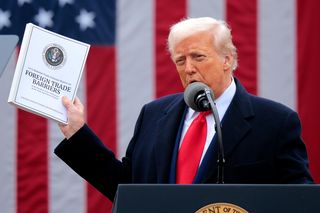The people of Korea and the United States are both watching unprecedented political tumult in their nations’ capitals. In Washington, the Donald Trump administration is more than two months into the most disruptive start of any U.S. administration in modern memory. President Trump and his billionaire buddy Elon Musk are following the Silicon Valley mantra to “break things and move fast.” Congress, the courts, the media and the public can barely keep up with all the institutions, policies and norms under assault.
Much of the focus has been on whether Trump’s moves are legal or morally justifiable. These are important debates. But in quiet corners, strategic experts are also beginning to worry about whether the administration’s “shock and awe” approach to governing might be badly damaging U.S. power from within at a time when China, Russia, Iran and North Korea are trying to damage U.S. power from outside.
But in quiet corners, strategic experts are also beginning to worry about whether the administration’s “shock and awe” approach to governing might be badly damaging US power from within at a time when China, Russia, Iran and North Korea are trying to damage US power from outside.
This is a good question. Congress did recently pass a federal budget bill that will increase military spending amidst large cuts to other parts of government, and the Pentagon is prioritizing air and naval power in Asia over ground forces in Europe. The hard power of the United States in Asia is likely going to increase in the near term.
However, other aspects of U.S. economic, diplomatic and soft power are in disarray. Musk’s Department of Government Efficiency (DOGE) is sending policy-naive software engineers armed with little more than algorithms into the Department of the Treasury to halt funding for whole departments, agencies and nonprofits. Some of these organizations may need reform or downsizing, but many are simply being defunded mid-operation without any review of the impact. That list includes most of the U.S. Agency for International Development, the National Endowment for Democracy, Radio Free Asia, international education funding at the Department of Education and support for international organizations like the World Health Organization. And that is only a partial list.
Harvard Professor Joe Nye, who coined the term “soft power,” has written that this assault on institutions represents “the end of U.S. soft power.” Even the more conservative Wall Street Journal has editorialized in favor of saving Radio Free Asia while Republican members of Congress have attempted to revive spending for the National Endowment for Democracy. Many of these organizations have taken the Trump administration to court. Some will win and some will survive, but many have already been forced to lay off staff, and it is clear that some will not survive. The danger is that DOGE is making it easier for China and Russia to use disinformation, corruption, and Belt and Road infrastructure financing to make inroads across Asia at the expense of the United States and other democracies.
President Trump’s volatile tariff policy could also do material damage to U.S. alliances and the country's economy. Canada, Japan and other allies are resentful of Trump’s extortionist approach to tariff policies, and the U.S. economy entered recession territory in February, in large part due to the uncertainty caused by the president’s cavalier approach to tariffs. That is a potential hit to U.S. economic power.
Canada, Japan and other allies are resentful of Trump’s extortionist approach to tariff policies, and the US economy entered recession territory in February, in large part due to the uncertainty caused by the president’s cavalier approach to tariffs.
However, several important caveats are necessary. First, many of President Trump’s moves are proving deeply unpopular with the public at home, including specific policies on tariffs, which raise prices, and the broader chaos that has characterized the last two months. Wall Street was buoyant when Trump first got elected, after all, since expectations were that he would favor tax cuts, deregulation and other business-friendly policies to grow the economy. Voters cast ballots with their wallets, so Trump may yet return to that trajectory on the economy, even if it takes longer for U.S. soft power to recover.
It is also worth remembering just how much power the United States has overall. Professor Michael Beckley of Tufts University has a compelling article in the January and February edition of “Foreign Affairs” arguing that the country has structural power advantages even during times of political dysfunction. For example, the U.S. share of global GDP today is about the same as it was in the mid-1990s when scholars wrote of the end of history and the dawning of a new era of U.S. unipolarity.
Beckley also calculates that if France, Germany or Britain were U.S. states, they would rank last behind Mississippi as the poorest states in the Union by per capita income. He also points out that over half of high-tech profits in the world belong to the United States, and the country enjoys energy self-sufficiency like no other advanced manufacturing economy in the world.
The 19th-century German statesman Otto von Bismark remarked that the United States has “special providence” — blessed by God with weak neighbors and abundant resources. The country has fought and bled from Normandy to Incheon to preserve freedom, so it is an exaggeration to think that the U.S. position in the world is just the result of dumb luck. But Bismark was not completely wrong. Even when doing damage to its own power from within, The United States has a lot of power to spare.
Except of course, when facing intense strategic competition from China, which means that there is less margin for error. The Trump administration is full of internal contradictions, but one mission that unifies the new national security team is the goal of prevailing over China in the struggle to define the future of Asia. Musk’s DOGE does not appear to be part of that consensus, judging from their capricious gutting of key instruments of U.S. statecraft from development to democracy that are needed for strategic competition. We will see whether Secretary of State Marco Rubio or others can regain control of the resources needed by their own departments to compete effectively in Asia. Betting in Washington is that Musk will not be on the scene for long given his unpopularity — sitting at about 30 percent in the polls. We will also have to see whether the allies’ centric policy articulated by Secretary of Defense Pete Hegseth in Manila at the end of March ultimately impacts thinking about tariffs or Trump’s antagonistic attitude toward NATO and Ukraine.
All of that uncertainty is in itself a potential drag on Washington's power and influence that may test Bismark’s idea of "special providence." But power in international relations is not something that can be calculated based on a few months of observation. The strategic culture of the United States is noteworthy both for periods of dysfunction and dramatic periods of renewal. History will not be written so quickly. Power matters — but so does time.









